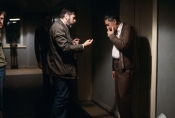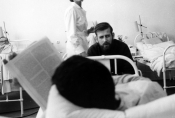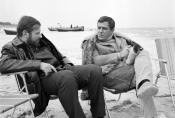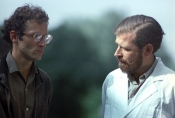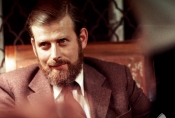Edward Żebrowski
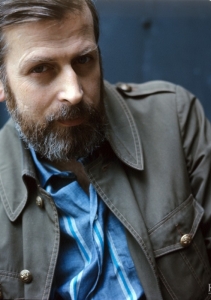
Real name: Edward Bernstein. Director, writer. He was born on July 26, 1935 in Warsaw. Graduate of the Directing Department at the Łódź Film School (1965). His student film Szkoła uczuć/School of Love (1965) won an award at the Student Film Festival in Warsaw. Initially, he was making television films (Szansa/The Chance, Dzień listopadowy/November Day, both in 1971). He also collaborated with Krzysztof Zanussi as co-writer of many of his films, including Struktura kryształu/The Structure of Crystal (1969) and Za ścianą/Behind the Wall (1971).
His feature debut was the Ocalenie/Salvation (1972) based on his own screenplay and awarded at the festival in Valladolid and Chicago. Manifested in the film are psychological and moral interests of the director; it also heralds the emergence of Żebrowski’s unhurried, economical, almost ascetic style. In 1978, he adapted Szpital Przemienienia/Transfiguration Hospital by Stanisław Lem – a moral treatise set during the Second World War, which won awards at the festival in Locarno and Varna, and the Silver Lions at the Polish Film Festival in Gdańsk. Two years later, he was honoured at the latter festival once again – he received the Silver Lions for the film W biały dzień/In Broad Daylight (1980) based on Władysław Terlecki’s prose. The literary prototype was inspired by a manipulated trial of an eminent critic and philosopher Stanisław Brzozowski, accused in 1908 of collaborating with the Tsarist secret police. Together with Krzysztof Zanussi, Żebrowski directed a German television film Unerreichbar/Unavailable (1982).
Żebrowski is equally known for his writing activity. In 1981, he received the Award of the Minister of Culture and Arts for his achievements as screenplay writer and director. He collaborated extensively with Zanussi, and served as a screenplay consultant for Krzysztof Kieślowski’s trilogy Trzy kolory/Three Colours. He had two small but important roles: in Iluminacja/Illumination (1973) and Constans (1980) by Zanussi.
In the years 1981-1984, he served as the head of the Polish Federation of Film Discussion Clubs. He taught directing at the Faculty of Radio and Television at the University of Silesia, the Danish Film School, in Berlin, Bern, and at the Andrzej Wajda School.
In 1976, together with Krzysztof Zanussi, he published Nowele filmowe/Film Novellas. He is the co-author (with Zanussi) of the play Gry kobiece/Feminine Games, which he directed at the Współczesny Theatre in Warsaw.
